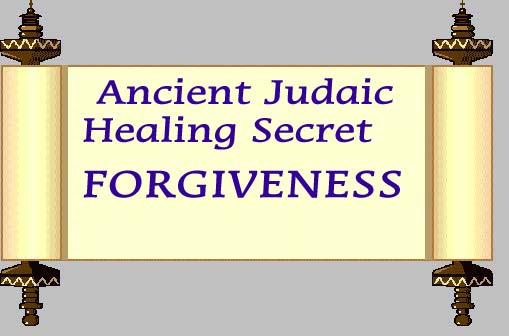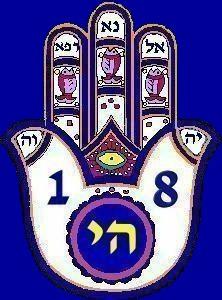|
|
 |
|

Judaism teaches us that inner peace can be reached only when we practice forgiveness.
Just as we ask God to forgive us as we make at-one-ment on
Yom Kippur, so we must learn to forgive others for what we believe are their transgressions.
Forgiveness has nothing to do with condoning action. This is where a lot of people get confused. They somehow
figure that if they forgive the murderer, they are condoning the murder. That is not the case at all.
Forgiveness is the letting go of a toxic and hurtful past. It is a way to release pent up or stored anger.
Stored anger is quite often destructive to our well-being and can often cause great harm to others, including those we love.
Through this process of selective forgetting, we become free to embrace a present without the need to reenact our
past. Through true forgiveness we can stop the endless recycling of guilt and anger.
Forgiveness Results in Personal Liberation
Often we may be tempted to think that the central work of forgiveness is letting the offender
off the hook. Instead, it is all about finding the space to somehow move past the harm we have felt and the ability to excuse
or at least disengage ourselves from another's actions.
When we are able to forgive, we soon realize that the
gift of release is first and foremost a gift we give to ourselves.
Our great rabbis have emphasized that in letting
go, forgiving the sins of others, we are made free to live more fully and to discover greater energy for the positive influences
in life. Our true peace of mind will finally come, neither from another's just punishment or their humble repentance, but
primarily from our ability to relinquish the pain inside of us for our own sake.
Certainly we all have mistakes and
shortcomings we have to live with. We sense that there are different choices we might have made, decisions that could have
been better. Sometimes these feelings have basis in reality. Sometimes we may carry guilt that is entirely irrational and
without any grounding in fact. Regardless, there is frequently a need to be able to face these feelings and release ourselves
from guilt as a precursor to being able to forgive the actions of another.
In those times and places when we truly
do fall short and do damage to others; it is by facing what we've done and accepting forgiveness that we discover the key to living a healthier life.
In the process of forgiving ourselves we will find we
are better equipped to move past either the patterns of behavior or the particular actions that have done harm in the past
and are less likely to repeat our mistakes.
Peace of mind comes not from
wanting to change others, but simply from accepting them as they are. True acceptance is always without demands and
expectations.
The unforgiving mind is certain of the justification of its anger and the correctness of its condemning
judgment. The unforgiving mind rigidly sees the past and future as the same and is resistant to change.
It does not
want the future to be different from the past. The unforgiving mind sees itself as innocent and others as guilty. It thrives
on conflict and on being right.
|
 |
|

|
 |
|
|
 |
|
|
 |
|
|
 |
 |
 |
An Old Jewish Fable:
SHAKE IT OFF AND STEP UP
Once upon a time there was a farmer who had an old mule.
The
mule fell into a deep dry well and began to cry
loudly. Hearing his mule cry, the farmer came over
and assessed
the situation. The well was deep and
the mule was heavy.
He knew it would be difficult, if not impossible,
to lift the animal out. Because the mule was old
and the well was dry, the farmer decided to bury
the animal
in the well. In this way he could solve
two problems: put the old mule out of his misery
and have his well filled.
He called upon his neighbors to help him and they
agreed to help. To work they went. Shovel full of
dirt
after shovel full of dirt began to fall on the
mule's back. He became hysterical. Then all of a
sudden an idea came
to the mule. Each time they
would throw a shovel full of dirt on his back he
could shake it off and step up. Shovel
full after
shovel full, the mule would shake it off and step
up. Now exhausted and dirty, but quite alive, the
mule stepped over the top of the well and walked
through the crowd. A great attitude. A great way
to approach
life. Shake it off and step up.
Too often we hold on to what has happened to us.
We hold on to it for a week,
a month, even years.
We cannot shake it loose from our memory. It eats
away at us and steals our joy, happiness
and peace
of mind. The past hurt can create feelings of
bitterness, resentment, anger and revenge. We keep
allowing
these emotions to be thrown on our backs
and if we do nothing, we will be buried deep in
the well.

|
|
|
|



